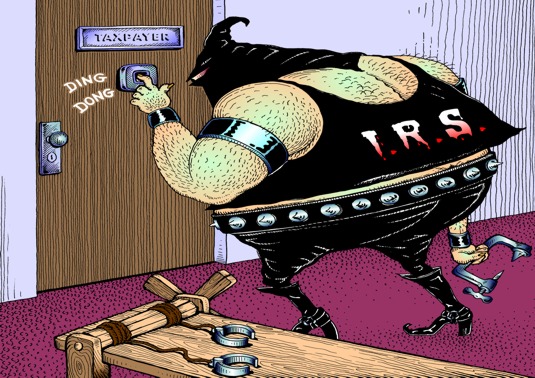
Horror Stories (you just can’t make this stuff up):
California taxpayer – IRS fraud division contacted a taxpayer regarding a visit he made to the web site of a subsequently convicted abusive tax scheme promoter. Apparently, he had only visited the web site, leaving his contact information and received some promotional materials from them. He did nothing wrong, so he spoke freely with the IRS agent. Big mistake. Not believing the taxpayer, the IRS auditor initiated a full examination of the taxpayer and all his related entities. While we’ve done a good job representing this taxpayer and so far the the IRS has left all items unchanged, including a couple entities related to securities trading, the time and effort to respond to the IRS demands and the CPA fees might have all be avoided had the taxpayer not “volunteered” information rather than telling the IRS to speak with his CPA to get all answers.
Connecticut taxpayer- IRS non-filer division paid a personal visit to a chronically late filing taxpayer at his place of business, sitting in the waiting room until the taxpayer came out to see them. Again this taxpayer, having been told repeatedly that as a non-filer he was going to eventually get into trouble, and further that since he recently received a certified letter from the IRS, that there was a good chance that IRS would be knocking on his door if he fails to respond to them. We told him that if this happens to tell the IRS to see his CPA to get all answers. He didn’t. He spoke freely with them telling them that since he merely has a W-2 and adequate withholding taxes taken out each week that even though he was five years behind in his filing, that he owed the IRS nothing. This taxpayer then delayed another month or so before getting any of his tax papers into our office. Because of statements the taxpayer made during that initial face-to-face visit, the IRS agent told us, was the reason that they placed a blanket lien on his real estate holdings in an amount in the low six-figures to make sure that the US Government was protected. Now that the taxpayer has one of his properties listed for sale – this IRS lien will be a source of embarrassment and additional cost for his attorney to have the lien removed before the property can be sold.
New York taxpayer – A taxpayer received a huge IRS refund from a NOL carryback resulting from securities trading losses. In addition he received an overpayment as discussed here: http://traderstatus.com/mark2mkt-1996.htm#interest Well, the IRS realized their error and eventually caught up with him, asking for the overpaid money back. Rather than pay the overpayment back as we told him to do, he called the IRS himself and somehow got the idea he didn’t need to send them the overpaid money right way. Then more procrastination, didn’t return the overpaid money and remained a non-filer for a few remaining tax years. IRS served him with a “90 day letter” and a demand for a sizable six-figure amount of alleged underpaid taxes. The CPA fees and possible attorney fees to address a 90-day letter could have been avoided if the taxpayer did not misunderstand when he spoke with the IRS on his own.
California taxpayer – Against our advice, a taxpayer stood by his rights to maintain secrecy of the ownership of his Nevada corporation since the State of Nevada Secretary of the State insists that is a huge benefit of incorporation in NV. Refusal to disclose private information about the ownership of the NV corporation made the IRS smell a rat and they decided not to initiate a regular examination but rather transferred the direction of the audit to take more aggressive legal action. Taxpayer had to retain a lawyer for representation since we do only regular IRS audits here and do not practice law. The initial fees for legal representation have gone over $10,000 and going higher. This is many times the professional fees for a regular audit, had the taxpayer better complied with the initial IRS inquiries.
Don’t be the next horror story! Never speak to the IRS on your own.
The National Research Program (NRP) has replaced the generally hated TCMP “audits from hell.”
NRP matched demographic data against zip code data from the 1988 Taxpayer Compliance Measurement Program (TCMP) study [prior to NRP, these studies provided data used by IRS to measure reporting accuracy] as a method to determine the workload distribution of the sample selected returns by examination site for estimation of required resources. The IRS has refrained from using demographic data, such as age, gender, religion, race, ethnicity or national origin in research efforts that may suggest specific groups for enforcement activities. NRP is a unique data collection device for the IRS in that its samples are truly random and an accurate reflection of the taxpayer populations in each study.
Taxpayer Compliance Measurement Program (TCMP)
Discriminate Function (DIF)
National Research Program (NRP)
